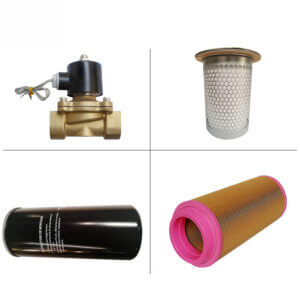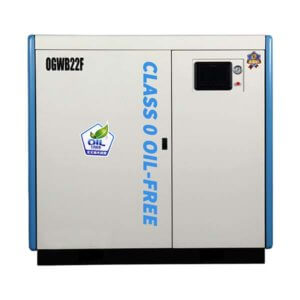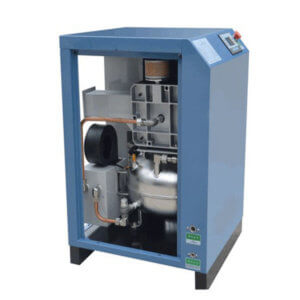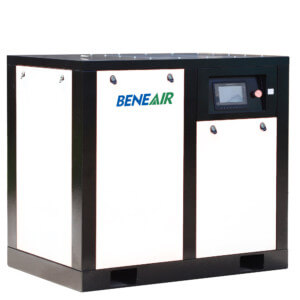Contents
Air compressor filters are an important part of the air compressor system. They help protect the compressor from dirt and debris, which can cause damage and reduce the compressor’s life. There are a variety of air compressor filters available, each with its benefits and features.
Choosing the Right Filter
Choosing the Right Filter
When choosing an air compressor filter, it is important to consider the type of debris that will be present in the air. If there is a lot of dust or dirt in the air, a filter with a high dirt-holding capacity is necessary. If there is a lot of moisture in the air, a filter with a high water-holding capacity is needed. Below are some types of Compressor filters.

Types of Filters
Types of Filters
- Intake Filters
Intake filters are manufactured to safeguard the compressor from dirt, and debris that can be sucked into the system.
Intake filters are typically made of a fiberglass or polyester mesh designed to catch dirt and debris. They come in a variety of sizes, so it is important to choose the right size for the compressor.
- Inline Filters
Inline filters are installed between the air compressor and the tool being pA compressor intake filter is designed to filter out dirt and debris that can enter the system powered. They protect both the compressor and the tool from contamination. Inline filters can be metal mesh, glass fiber, or polyester pleated paper. The material used will have a big impact on its dirt-holding capacity, water-holding capacity, and pressure drop (if there is any).
- Metal Mesh Filters
Metal Mesh filters are very efficient at removing large particles from the system. They typically have a high dirt-holding capacity as well as a low-pressure drop. However, they cannot capture very small particles such as oil mist and coolant droplets. Thus, these types of inline filters are not recommended for tools that produce fine debris or dust, e.g. sanders or grinders.
- Oil Filters
Oil filters help to protect the compressor from damage caused by oil contaminants in the air. They should be installed downstream of the air intake filter and before the oil separator.
There are two types of oil filters.
-
Spin-on Oil Filters:
Spin-on oil filters are one of the most significant types of oil filters. They are easy to install and remove and can be replaced without draining the compressor oil. They typically have a high dirt-holding capacity and a low-pressure drop.
- Cartridge Oil Filters
Cartridge oil filters are more expensive than spin-on oil filters, but they offer many benefits. They are less prone to leaks, can be cleaned and reused, and have a higher dirt-holding capacity than spin-on oil filters. However, they require the compressor oil to be drained before replacement.
- Aftercooler Filters
Aftercooler filters are used to remove moisture and particles from the compressed air after it has been cooled in the aftercooler. They are typically installed downstream of the aftercooler and before the regulator or receiver.
There are two types of aftercooler filters.
- Expansion-type Aftercooler Filters
Expansion-type aftercooler filters use a metal mesh filter to remove moisture and particles from the compressed air. They typically have a high-pressure drop and low dirt-holding capacity. However, they can be used for extended periods without cleaning or maintenance, making them ideal for long production runs.
- Cartridge Aftercooler Filters
Cartridge aftercooler filters use glass fiber media to remove moisture and particles from the compressed air. They offer many of the same benefits as expansion-type aftercooler filters (low maintenance, long service life), but they offer much better dirt-holding capacity.

Regulation of Filtration Efficiency
Regulation of Filtration Efficiency
Most filters have a minimum efficiency that they must meet before being approved for use. This is typically around 90% to 95%. If the filter does not meet this minimum, large particles will likely pass through the filter, potentially causing damage to the compressor components.
In other cases, standard components will work with the existing system to allow for changes in airflow without having to replace the entire system. Replacement filters should always be of the same type as the original filter to ensure compatibility.
Filter regulation
Air compressor filters and dust collection systems must be regularly cleaned and managed to maintain the highest level of efficiency. The frequency will vary based upon several factors, including size, type, and several components in the filter system as well as the environment that it is used in.
If the filter has been compromised because of high heat or age, it will not be able to meet the minimum efficiency level and should be replaced.
Functions that filters perform in air compressor
Functions that filters perform in air compressor
- Filters are the first line of defence for compressor systems. They ensure that dirt and debris are kept away from the system, where they cannot cause damage to any components.
- Compressor filters help to improve efficiency, allowing for longer periods between filter cleanings.
- Compressor filters also help protect the compressor and environment by preventing chemicals and hazardous materials from entering the air and releasing them into the atmosphere.
- Compressor filters also help to keep energy costs down by protecting against damage. If dirt and debris enter a compressor, it will burn more energy to do its job.
- Air compressor filters are inexpensive components that add value and protection to any system, making them well worth the initial cost of purchase.
Conditions to replace or repair the filters
Conditions to replace or repair the filters
There are times when it is necessary to replace or repair an air compressor filter. otherwise, it will not work properly. The following are some signs that indicate that your compressor filter requires to be maintained.
- If the compressor is making noise, this could be an indication that something has entered the system. Inspecting and cleaning, or repairing filters will help to prevent additional damage.
- If there is overheating in the compressor, it might be necessary to service the air filter to prevent further damage.
- If the filter is not performing as it should, then it might need to be replaced or repaired.
- The amount of dust in the air can also help to determine when it is necessary to clean or replace the compressor filters.
- Proper maintenance will help keep your compressor operating as efficiently as possible.
- If the compressor is not working properly due to a dirty, broken, or damaged filter, it may be necessary to remove and replace the old parts with new ones.
Air compressor filters play an important role in protecting the compressor and environment. They should be regularly cleaned and managed to ensure maximum efficiency. When they are no longer able to meet the minimum efficiency level, they should be replaced. Compressor filters are an inexpensive way to add value and protection to any system. By taking into account these procedures, you can protect your investment and optimise the performance of your compressor.









Leave A Comment